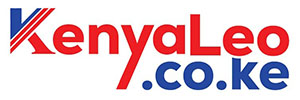
FROM LEFT: Weetabix EA Head of Marketing Ascar Ogara, CEO Dominic Kimani and Head of Sales Kennedy Muchiri celebrate the launch of the Fyatuka na Weetabix program

Breakfast cereal manufacturer Weetabix East Africa is gunning for the millennial market in Kenya with an expansion in its local plant, brand, and distribution.
The firm announced its latest inflation-beating strategy to grow its market share in Kenya, which mainly targets younger and school-going youth who, at nearly 13 million, comprise nearly a quarter of the country’s population.
According to Dominic Kimani, Weetabix EA CEO, millennials matter, with research showing that there is an immense opportunity among younger people who are also changing breakfast cereal consumption habits.
“For young people, the high nutrient density of breakfast cereals, especially those that are whole grain or high in cereal fiber, is an important source of key nutrients. Millennials consider cereal a meal that can be eaten at any time, expanding it into a snack outside breakfast,” said Kimani, adding that college-age millennials consider cereal a great snack.
Furthermore, millennials want the ability to customize their food, creating an environment for countless innovative new ways to eat cereal and spawning a wide range of innovative products.
To respond nimbly, Weetabix EA has renewed focus on the “kadogo” 37-gram pack version of its flagship WEETABIX breakfast cereal brand and the addition of two cornflakes variants named Fruity Fiesta and Fruit Frenzy to its portfolio.
It also includes an investment of more than Ksh 85 million (USD 500,000) in upgrading the manufacturing facility located in Nairobi and pushing the brands into the market. Of this, about Ksh. 23 million has gone into the distribution channel, production process, and consumer rewards, while Ksh. 62 million (USD 400,000) has gone into upgrading the manufacturing capability and capacity over the past few months to support this venture.
Speaking during the official kick-off of its national consumer campaign dubbed “Fyatuka na Weetabix,” Kimani pointed out that diversity was driving the need for a high degree of differentiation to meet a wide range of consumer tastes and preferences.
Additionally, health consciousness was also growing, with consumers seeking natural, healthy, and affordable products across the region. This, he stated, calls for a need to evolve with the times and invest in production improvements to optimize output and still deliver the right product to consumers at an affordable price.
He noted that the current economic times have put a strain on overall breakfast consumption in Kenya, with the new initiative designed to change this trajectory while at the same time bringing value to consumers as they seek to enjoy healthy choices.






